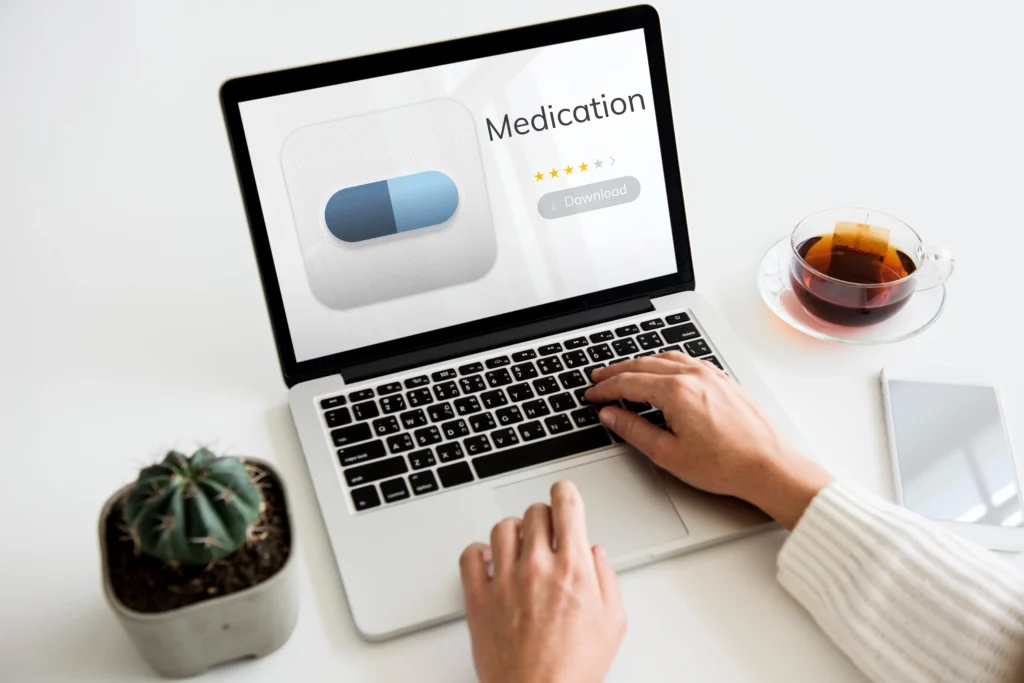Let’s face it – managing medications can feel like conducting a complex orchestra.
Between different dosing schedules, potential interactions, and various instructions, it’s easy to feel overwhelmed.
But don’t worry – we’re going to break this down into bite-sized pieces that will help you become the conductor of your own medication symphony.
The Foundation: Building Your Medication Knowledge Base
Know Your Cast of Characters
Think of your medications as team players, each with their own special role.

Prescription Management is Important
Just as you wouldn’t confuse your quarterback with your goalkeeper, you shouldn’t mix up your medications. Take time to learn their names – both brand and generic – and understand their specific purposes. It’s like learning your coworkers’ names; it just makes everything run more smoothly.
The Story Behind Each Prescription
Every medication has its own origin story. Understanding why you’re taking each one helps you stay motivated and committed to your treatment plan. For instance, that little white pill isn’t just another tablet – it’s your daily defender against high blood pressure, working tirelessly to keep your cardiovascular system in check.
Creating Your Medication Management System
The Art of Timing
Did you know that some medications are like early birds, working best when taken first thing in the morning, while others are night owls, most effective when taken before bed? Understanding these timing nuances can dramatically improve how well your medications work. Think of it as scheduling meetings at the most productive time of day – timing really is everything.
Storage Solutions: Beyond the Medicine Cabinet
Here’s a surprising fact: your bathroom medicine cabinet might actually be one of the worst places to store medications. The heat and humidity from showers can degrade your medications faster than a popsicle on a summer day. Instead, consider creating a dedicated medication station in a cool, dry place away from direct sunlight.
The Digital Age of Medication Management
Apps and Tools: Your Personal Pharmacy Assistant
Welcome to the 21st century of medication management! Today’s smartphone apps can do everything from sending reminder notifications to tracking your supply levels. Some can even alert you about potential drug interactions or help you schedule refills. It’s like having a pharmacy assistant in your pocket.
Digital Records: Your Medication Story
Keeping digital records of your medications isn’t just about being organized – it’s about creating your medical story. This can be invaluable during emergencies or when switching healthcare providers. Think of it as your medication autobiography, complete with chapters on side effects, effectiveness, and any changes over time.
Navigating Common Challenges
The Generic vs. Brand Name Puzzle
Let’s demystify the generic versus brand name debate. Imagine buying designer jeans versus a store brand – both cover your legs, right? Generic medications contain the same active ingredients as their brand-name counterparts but often cost significantly less. However, there are times when brand names might be preferable, and your healthcare provider can help you make that decision.
Managing Side Effects: The Detective Work
Experiencing side effects doesn’t mean you have to suffer in silence. Think of yourself as a detective, keeping detailed notes about what you experience and when. This information is gold for your healthcare provider in determining whether to adjust your dosage or try an alternative medication.
Building Your Healthcare Team
Your Pharmacist: An Underutilized Resource
Did you know that pharmacists spend more years studying medications than doctors do? They’re like the sommeliers of the medication world – experts in understanding how different medications interact and how to get the most benefit from them. Don’t be shy about tapping into their knowledge.
Communication is Key
Create a open dialogue with your healthcare providers. They’re not mind readers – the more information you share, the better they can help you. Think of it as giving them the tools they need to help you succeed.
Special Considerations
Traveling with Medications
Traveling with medications requires more planning than packing your favorite sweater. Always carry more than you think you’ll need, keep them in original containers, and bring copies of your prescriptions. It’s like having a backup plan for your backup plan.
Seasonal Considerations
Just as you adjust your wardrobe for different seasons, you might need to adjust how you manage your medications. Some medications can make you more sensitive to sun exposure, while others might need different storage conditions during summer months.
Emergency Preparedness
Creating Your Medication Go-Bag
Natural disasters don’t make appointments. Having a medication go-bag ready can provide peace of mind and ensure you’re prepared for unexpected situations. Include a week’s worth of medications, copies of prescriptions, and important medical contacts.
When Things Go Wrong
Despite best efforts, mistakes happen. Know the signs of adverse reactions and have an action plan ready. It’s like having a fire escape route – you hope you’ll never need it, but you’ll be glad it’s there if you do.
Looking to the Future
Keeping Up with Changes
The world of medicine is constantly evolving. New medications, updated guidelines, and improved management tools emerge regularly. Stay informed through reliable sources and regular discussions with your healthcare team.
The Role of Technology
From smart pill bottles to medication-tracking implants, technology is revolutionizing how we manage medications. While you don’t need to adopt every new gadget, staying open to helpful innovations can make medication management easier and more effective.
Managing medications doesn’t have to be overwhelming. By building your knowledge base, creating effective systems, and maintaining open communication with your healthcare team, you can take control of your medication management. Remember, the goal isn’t perfection – it’s progress toward better health outcomes.
Think of medication management as a journey rather than a destination. Each small step you take toward better understanding and managing your medications is a step toward better health. Stay curious, stay organized, and most importantly, stay engaged in your healthcare journey.




